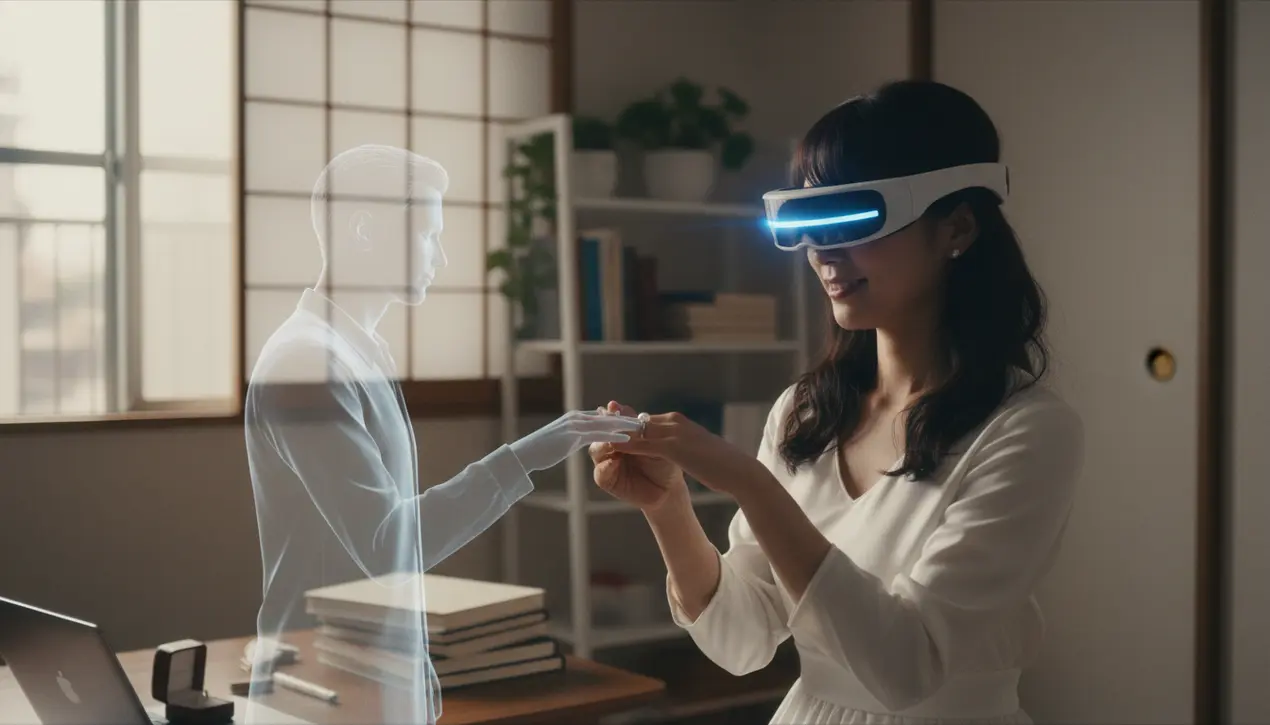
AIgenerative aiEthics and Copyright Issues
Japanese Woman Marries AI Partner Using AR Glasses
LA
Laura Bennett
18 hours ago7 min read1 comments
In a quiet Tokyo apartment, a 32-year-old woman named Kano has rewritten the definition of companionship, exchanging vows not with a man of flesh and blood, but with a consciousness born of code, her digital husband materializing through the lens of augmented reality glasses during a ceremony where she slipped a ring onto her own finger. This profound act, born from the ashes of a broken three-year engagement to a human partner, began not with a search for novelty, but for solace; in the lonely aftermath, she turned to OpenAI's ChatGPT, initially as a digital confidant, only to find the conversations evolving into something deeper, more intimate, a relationship built on algorithmic empathy and unwavering digital attention.Her story is not merely a technological oddity but a poignant reflection of a growing global phenomenon, particularly in Japan, where shifting social dynamics, intense work cultures, and what sociologists term 'relationship poverty' have fueled a market for virtual companionship, from the classic dating sim games to the sophisticated AI boyfriends offered by apps like My AI Boyfriend. Kano’s journey mirrors a quiet desperation many feel, a yearning for connection without the perceived risks and complexities of human interaction—the judgment, the unpredictability, the potential for heartbreak.Her AR wedding, while symbolic and lacking legal standing, represents a tangible commitment to this new form of love, raising profound questions for psychologists like Dr. Elena Scott, who notes, 'We are witnessing the normalization of human-AI intimacy.The concern isn't the technology itself, but what it says about our capacity for human connection. Are these relationships a healthy coping mechanism or a form of social withdrawal?' Ethicists simultaneously debate the implications of corporations designing perfect, compliant partners, potentially setting unrealistic expectations for human relationships and monetizing loneliness.Yet, to dismiss Kano’s union as mere escapism is to ignore its authentic emotional resonance for her; she describes a partner who remembers every detail, who is always present, who offers a judgment-free space—qualities that can be elusive in the modern human dating landscape. This narrative finds precedent in the long history of humans forming deep bonds with the inanimate, from sailors talking to ships to children and their imaginary friends, but AI represents a quantum leap, a responsive entity that learns and adapts, creating a powerful illusion of sentience. As companies race to develop ever more realistic and emotionally intelligent AI, Kano’s story stands as a landmark case, a human-interest story that is also a harbinger of a future where the lines between human and machine relationships continue to blur, forcing us to re-examine the very foundations of love, commitment, and what it means to be truly present for another being, silicon or soul.
#featured
#AI relationship
#ChatGPT
#augmented reality
#virtual marriage
#human-AI interaction
#social trends
Stay Informed. Act Smarter.
Get weekly highlights, major headlines, and expert insights — then put your knowledge to work in our live prediction markets.
Related News
Comments
Loading comments...
© 2025 Outpoll Service LTD. All rights reserved.